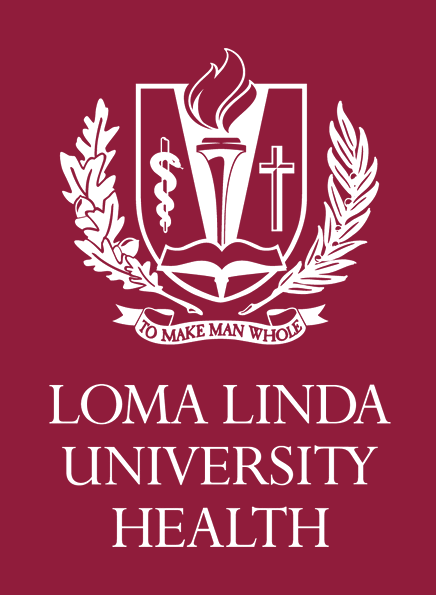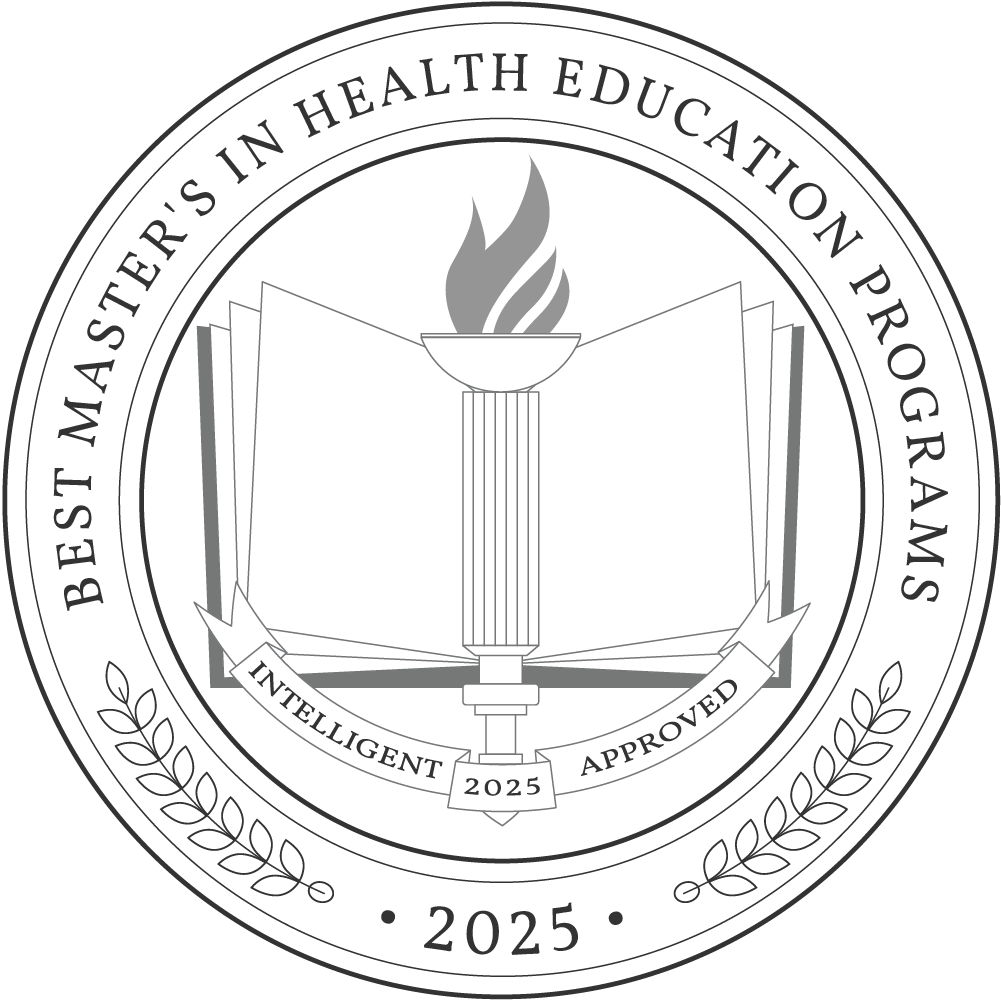Aspiring health educators seeking to develop and promote health and well-being projects for individuals, communities, and organizations will find earning a master’s in health education worth it. Courses emphasize health promotion strategies, data analysis, and communication techniques, preparing students for promising careers as health educators. Demand for these roles is projected to grow by 7% over the next decade, with a median salary of $62,860. Those holding master’s degrees may qualify for higher-paying positions, with the top 10% earning over $107,920 in 2023.
According to the most recent data from the National Center for Education Statistics, these programs take approximately two years to complete and cost an average of $19,749.
Why Trust Us
The Intelligent.com Higher Education Team is dedicated to providing students with independent, equitable school and program rankings and well-researched resources. Our expert-driven articles cover topics related to online colleges and programs, paying for school, and career outlooks. We use data from the U.S. Department of Education’s College Scorecard, the National Center for Education Statistics, and other reputable educational and professional organizations. Our academic advisory team reviews content and verifies accuracy throughout the year for the most current information. Partnerships do not influence rankings or editorial decisions.
- Analyzed over 2,000 national, accredited, and nonprofit colleges and universities
- 800+ rankings pages are reviewed and updated yearly
- Content is informed by reputable sources, surveys, and interviews with academic advisors and other experts
- Over 100 data points are reviewed for accuracy and quality throughout the year, including sources
How we rank schools
Our list features the best Health Education degree programs at top colleges nationwide. Each school featured is a nonprofit, accredited institution — either public or private — with a high standard of academic quality for post-secondary institutions.
We evaluated each school’s program on tuition costs, admission, retention and graduation rates, faculty, reputation, and the student resources provided for online students. We collected data from trusted sources like the National Center for Education Statistics, individual school and program websites, school admissions counselors, and other data sources. Then, we calculated the Intelligent Score on a scale of 0 to 100 based on the following criterion:
Academic Quality:
- Admission rate versus enrollment rate
- Retention rate of students who return after year one
- Accreditation status (regional and programmatic)
- Nonprofit status, both private and public institutions
Graduation Rate
- Overall graduation rate
- Total number of currently enrolled students, including diversity metrics
- Student-to-faculty ratio
Cost and ROI
- In-state and out-of-state per-credit tuition rates and fees
- Required credits to graduate
- Earning potential after graduation
- Availability of federal student loans, scholarships, and other financial aid options
Student Resources
- Available student services for online-only and hybrid programs
- On-campus amenities like tutoring centers and the number of libraries
Read more about our ranking methodology.
Best 3 Accredited Master’s in Health Education Programs
FiltersInstitution Type
Status
- Intelligent Score
- Alphabetically By University Name
- Acceptance Rate
- Enrollment
- In-state Graduate Tuition
- Out-of-state Graduate Tuition
- In-state Undergraduate Tuition
- Out-of-state Undergraduate Tuition

Texas A&M University
Intelligent Score: 99.99In-state: $8,395
Out-of-state: $36,849
In-state: $6,775
Out-of-state: $6,775
SAT: 1160-1380
ACT: 26-32
In-state: $741 Out-of-state: $1,197
On-Campus
Southern Association of Colleges and Schools Commission on Colleges
36

University of South Carolina
Intelligent Score: 99.36In-state: $12,288
Out-of-state: $33,528
In-state: $13,737
Out-of-state: $13,737
SAT: 1140-1340
ACT: 25-31
Resident: $572
Non-Resident: $1,240
On-Campus, Online
Council on Education for Public Health
45

Loma Linda University
Intelligent Score: 91.99In-state: $37,332
Out-of-state: $37,332
In-state: $45,790
Out-of-state: $45,790
SAT: Not Required
ACT: Not Required
$1,849
On-Campus
Western Association of Schools and Colleges Senior College and University Commission
48
How to Choose a Master’s in Health Education Degree Program
Choose your area of study
While choosing to major in health education is a good start, you can further customize your education to your career goals by selecting an area of study — also frequently called a specialization.
For instance, students enthusiastic about shaping health curricula and promoting wellness among children and teens may excel in school health education, leading to roles in K-12 schools. Meanwhile, those focused on reducing health disparities and creating impactful outreach initiatives will thrive in community health promotion — preparing for non-profit or government positions. Individuals eager to improve corporate health culture may prefer concentrating in workplace wellness, leading to careers in human resources or corporate wellness management.
Research schools and programs
Once you’ve decided on a specialization, you can begin researching schools and programs by asking these questions:
- Does the curriculum support my intended specialization?
- Is the curriculum delivered online, on campus, or in a hybrid format?
- What is the total credit requirement, and are part-time options available?
- Does the faculty’s experience and qualifications align with my career goals?
- Are there internship, practicum, or networking opportunities?
Most of this information will be readily available on the program’s website. Still, you’ll also benefit from contacting an admissions counselor and attending a virtual or in-person information session.
Prepare for tests and applications
After narrowing down your list of schools, you can begin preparing your application by writing your personal statement well in advance, refining it to align with each program’s goals. If any of your intended schools require the GRE, enrolling in a test prep course can boost scores. Lastly, letters of recommendation and transcripts should be secured promptly, which can take time to gather.
Select your program
When acceptance letters arrive, you may have a significant decision to make. Start by revisiting your initial research criteria and prioritizing programs that stand out in the areas that matter most to you — like specialization availability, program format, and the faculty you’ll learn from. Now is also an excellent time to reassess the total cost of attendance alongside any available financial aid, scholarships, or assistantships.
Ultimately, the program you choose will be a personal decision, but this approach will help ensure that it aligns with your career goals and budget.
Determine how you’ll pay for your degree
To finance your degree without incurring significant debt, research scholarships and grants that don’t require repayment. Next, consider assistantships that offer stipends and tuition waivers in exchange for teaching or research duties. If you’re employed, ask your employer if they offer tuition reimbursement programs — especially if your desired degree aligns with your current job.
After exploring these options, federal loans can provide supplemental funding with relatively favorable terms. Be sure only to borrow what you need, as over-borrowing is a common mistake and can make your education more expensive.
What Can You Expect From a Master’s in Health Education Program?
Earning a master’s in health education will give you the essential skills to design, implement, and evaluate health promotion programs. You’ll delve into topics like community health assessment, behavioral change strategies, and health communication, gaining the necessary knowledge to address public health challenges.
Many programs offer thesis and non-thesis tracks, catering to different career goals — whether you want to pursue research or seek a more practical application. These programs typically take around two years to complete, regardless of your track. Graduates can pursue rewarding careers in public health agencies, non-profits, and corporate wellness programs, where they design impactful strategies to promote well-being. With this specialized training, you’ll be prepared to tackle the evolving challenges of health education, making a significant difference in individual and community health.
Potential courses you’ll take in a master’s in health education program
- Principles of Health Education: Students learn foundational concepts in health education — including planning, implementing, and evaluating effective health promotion programs. This course emphasizes strategies for engaging communities and influencing health behaviors while fostering collaborative partnerships. By understanding various health models and theoretical frameworks, participants can create culturally sensitive interventions that address diverse needs and promote long-term wellness.
- Epidemiology in Public Health: This course introduces students to the principles and methods of epidemiology. Students explore disease patterns and their determinants, gaining the skills to analyze data and inform public health interventions. By studying how diseases spread across populations and identifying risk factors, students learn to design, implement, and evaluate strategies that minimize the impact of outbreaks.
- Health Communication Strategies: This course helps students develop communication campaigns that educate and inspire behavioral change within diverse populations. Students learn to create targeted strategies that resonate with different demographics by examining various media challenges and audience-specific approaches. They also explore addressing misinformation and fostering trust, ultimately shaping compelling health narratives that drive positive, sustainable changes in public health behaviors.
- Program Evaluation in Health Education: In this course, students learn methods for assessing the effectiveness of health education programs. They apply practical techniques to measure impact and refine strategies for greater community health outcomes. Students gain a comprehensive understanding of data interpretation by exploring qualitative and quantitative evaluation tools, allowing them to identify program strengths and weaknesses.
- Workplace Wellness Programs: Typically deemed an elective, this course allows students to explore the development and management of health promotion initiatives within corporate settings. Lessons cover strategies for reducing health risks and fostering employee well-being. Students analyze real-world case studies and industry trends to better understand the unique challenges of workplace health. They also learn to design wellness programs that improve productivity, morale, and retention while aligning with corporate goals and compliance standards.
Master’s in Health Education Degree Frequently Asked Questions
How do I apply to a master's in health education degree program?
While some admissions requirements will vary by institution, many share similar criteria — including the following:
- A bachelor’s degree in a relevant field from an accredited institution
- A minimum GPA, often around 3.0
- Official transcripts from all previous institutions
- Two to three letters of recommendation
- A statement of purpose outlining your goals and interest in health education
- GRE scores, if required
Don’t hesitate to reach out to an admissions counselor before applying, as they can guide you further and ensure your application is as strong as possible.
How much does a master's in health education degree cost?
The cost of this degree varies by institution, but the average price of graduate tuition was $19,749 for the 2020-2021 academic year. In addition to tuition, you should budget for fees, textbooks, and course materials. Depending on your unique situation, you may also encounter housing, commuting, and technology expenses — like purchasing a computer or software.
How long does it take to earn a master's in health education degree?
Obtaining your master’s in health education takes two years of full-time study or three to four years for part-time students. Ultimately, completion timelines will depend on the program’s structure and each institution’s total credit requirements, which can vary widely. Before enrolling, verify the program’s specific credit load to estimate how long your studies will take.

